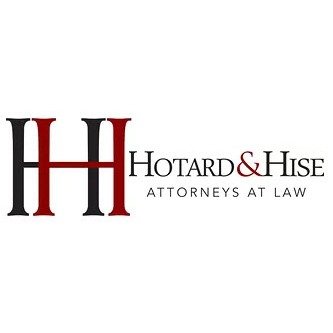Best Drug Crime Lawyers in Georgia
Share your needs with us, get contacted by law firms.
Free. Takes 2 min.
Or refine your search by selecting a city:
List of the best lawyers in Georgia, United States
About Drug Crime Law in Georgia, United States
Drug crime law in Georgia covers the possession, distribution, manufacturing, and trafficking of controlled substances, including illegal drugs and certain prescription medications. Like much of the United States, Georgia takes drug offenses seriously, with laws designed to deter both use and distribution. Georgia differentiates between misdemeanors and felonies depending on the type and amount of drug, as well as the individual’s prior criminal history. Drug crimes in Georgia can result in significant penalties ranging from fines and probation to long-term imprisonment.
Why You May Need a Lawyer
There are many situations where someone accused of a drug crime in Georgia would benefit from legal guidance. Common scenarios include being arrested for possession of a controlled substance, being charged with drug trafficking or distribution, facing allegations of possession with intent to distribute, or being investigated for the manufacturing of drugs. Even a first-time offense can have lasting consequences on employment, education, and family life. A lawyer can help navigate court procedures, negotiate plea agreements, and ensure that your rights are protected throughout the criminal justice process.
Local Laws Overview
Georgia’s drug laws are detailed in the Official Code of Georgia Annotated (OCGA) Title 16, Chapter 13. The state classifies drugs into schedules, with Schedule I drugs considered the most dangerous with no accepted medical use, and Schedules II through V representing decreasing levels of potential harm and abuse. Penalties for drug crimes depend on the schedule and quantity of the controlled substance involved.
Common types of drug crimes in Georgia include possession, possession with intent to distribute, trafficking, and manufacturing. Even simple possession of small amounts of certain drugs, such as marijuana, can carry criminal penalties, although some counties and cities have decriminalized minor first-time marijuana offenses. Larger quantities or activity implying intent to distribute generally carry harsher penalties. Georgia also has mandatory minimum sentencing for certain drug trafficking convictions, and enhancements may apply for offenses committed near schools or involving minors.
Unlike some states, Georgia has no broad medical marijuana program, although law allows for limited use of low THC oil for certain medical conditions. Even so, unauthorized possession is still a crime.
Frequently Asked Questions
What are the most common types of drug crimes in Georgia?
The most common charges involve possession of a controlled substance, possession with intent to distribute, drug trafficking, and manufacturing drugs. Marijuana offenses are also frequent but may be treated less harshly in some jurisdictions.
Is marijuana legal in Georgia?
Recreational marijuana is illegal in Georgia. However, a limited medical cannabis program allows certain patients to possess low THC oil with state registration. Unauthorized possession of marijuana, even in small amounts, is still a criminal offense.
What determines if a drug offense is a misdemeanor or a felony?
The classification depends on the type of drug, the amount possessed, prior criminal history, and whether distribution or intent to distribute is alleged. Most drug offenses beyond small amounts of marijuana are felonies.
What should I do if I am arrested for a drug crime?
Remain calm, exercise your right to remain silent, and request a lawyer immediately. Do not discuss your case with the police without legal representation.
Can a drug conviction be removed from my record?
In some cases, you may be eligible for record restriction (commonly known as expungement) if your charges were dismissed or if certain conditions are met after conviction. Drug offenses eligible for restriction are limited.
Are there diversion or first-offender options for drug charges?
Many counties in Georgia offer diversion programs, particularly for first-time offenders or less serious charges. Successful completion of these programs can lead to dropped charges or reduced penalties.
How are prescription drug cases handled?
It is illegal to possess prescription medications without a valid prescription. Charges related to prescription drugs are prosecuted in a similar manner to other controlled substances.
What penalties can I face for a drug conviction in Georgia?
Penalties may include probation, jail or prison time, fines, community service, loss of driving privileges, and a permanent criminal record. The severity depends on the type and amount of drug, priors, and circumstances.
Does Georgia have mandatory minimum sentences for drug crimes?
Yes, mandatory minimum sentences apply to certain trafficking and distribution offenses, particularly for large quantities or repeat offenders. Judges may have limited discretion in these cases.
Will a drug conviction affect my employment or education?
Yes, a conviction can affect employment opportunities, professional licensing, and educational options including eligibility for student financial aid.
Additional Resources
- Georgia Public Defender Council: Provides public defender services and legal information for those who cannot afford a lawyer. - Georgia Bureau of Investigation (GBI): Offers public safety information and drug-related statistics. - State Bar of Georgia: Maintains a directory of criminal defense attorneys experienced in drug crime cases. - Georgia Department of Corrections: Provides information about correctional facilities and inmate services. - Local county court and law enforcement agencies: Offer help regarding local diversion programs, court processes, and arrest records.
Next Steps
If you or someone you know is facing a drug crime charge in Georgia, consider the following steps:
- Do not discuss your case with anyone except your attorney. - Contact a qualified criminal defense lawyer who has experience handling drug crimes in Georgia. - Gather all documents related to your case, including arrest records, court papers, and any communications from law enforcement or the court. - If eligible, inquire about diversion programs or first-offender options in your county. - Stay informed about your court dates and legal obligations, and follow all instructions from your attorney. - Seek support from community organizations if you need help with addiction, legal guidance, or related issues.
Prompt legal advice and representation can make a critical difference in the outcome of a drug crime case in Georgia. Take action as early as possible to protect your rights and your future.
Lawzana helps you find the best lawyers and law firms in Georgia through a curated and pre-screened list of qualified legal professionals. Our platform offers rankings and detailed profiles of attorneys and law firms, allowing you to compare based on practice areas, including Drug Crime, experience, and client feedback.
Each profile includes a description of the firm's areas of practice, client reviews, team members and partners, year of establishment, spoken languages, office locations, contact information, social media presence, and any published articles or resources. Most firms on our platform speak English and are experienced in both local and international legal matters.
Get a quote from top-rated law firms in Georgia, United States — quickly, securely, and without unnecessary hassle.
Disclaimer:
The information provided on this page is for general informational purposes only and does not constitute legal advice. While we strive to ensure the accuracy and relevance of the content, legal information may change over time, and interpretations of the law can vary. You should always consult with a qualified legal professional for advice specific to your situation.
We disclaim all liability for actions taken or not taken based on the content of this page. If you believe any information is incorrect or outdated, please contact us, and we will review and update it where appropriate.
Browse drug crime law firms by city in Georgia
Refine your search by selecting a city.














